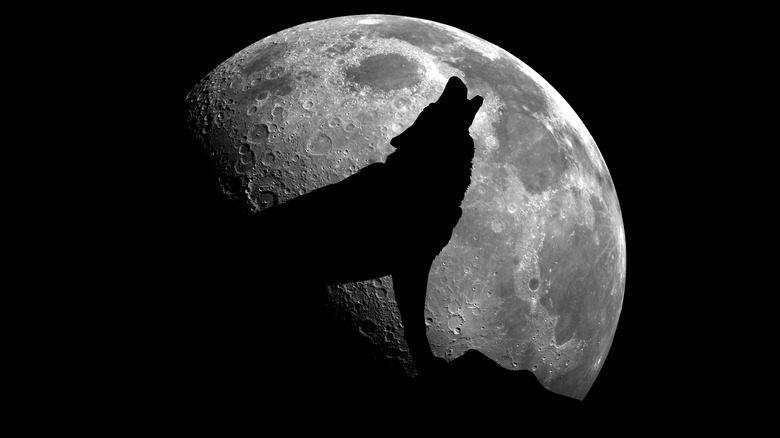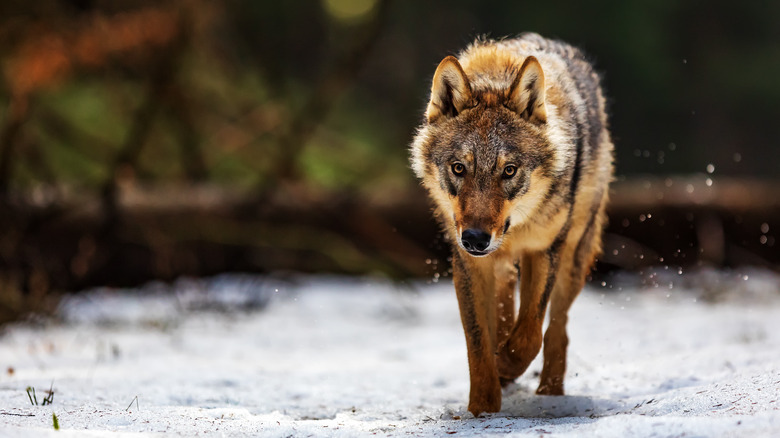What Is A Wolf Moon? We Explain
The "wolf moon" is the first moon of the new year. In 2022, the full wolf moon will occur on January 17, according to The Old Farmer's Almanac, which popularized the custom of naming moons.
The tradition largely comes from indigenous North Americans, many of whom used moons with their calendar system (as did Europeans before Julius Caesar) and associated each moon with certain traditions or natural phenomena. Colonizers adopted and tweaked this system for their own use, and sometimes used their own names in place of the tribal names. They also put each moon inside their own European calendar months, so that the "wolf moon" is the first moon in January, though not necessarily the first moon after the winter solstice. (Less commonly, some people do count the moons within solstices and equinox, according to EarthSky, though this too is not quite what pre-Columbian North Americans used [via Britannica]). Some of the names may also come from pagan European names for the months, such as the Anglo-Saxon and Germanic calendar systems, according to Newsweek.
Howling at the wolf moon
It isn't clear if the name "wolf moon" actually came from a Native American tribe, but the idea seems to be that wolves can be heard howling at the moon at this time of year (via Old Farmer's Almanac). People used to believe that wolves howled out of hunger, which made sense for the middle of winter, though now it's thought that wolves actually howl as a form of communication with other wolves.
The actual Native American moon names for the month of January varied by tribe and region. According to the American Indian Alaska Native Tourism Association, other names for this moon include the Great Spirit Moon (Anishinaabemowin), Ice Moon (Catawba), Windy Month (Cherokee), Cracking Tree Moon (Mahican), and the aptly named Someone's Ears are Freezing Moon (Oneida). The Assiniboine people called it the Center Moon, according to the Old Farmer's Almanac, because it marks the middle of the cold season.

